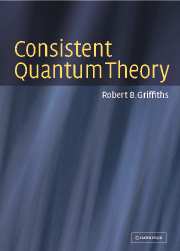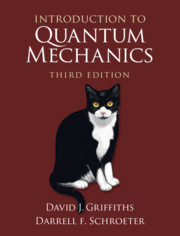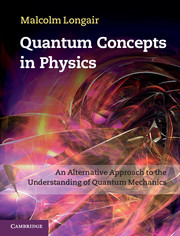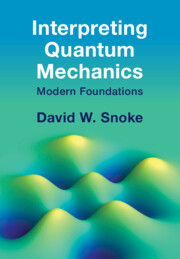Consistent Quantum Theory
This volume elucidates the consistent quantum theory approach to quantum mechanics at a level accessible to university students in physics, chemistry, mathematics, and computer science, making this an ideal supplement to standard textbooks. Griffiths provides a clear explanation of points not yet adequately treated in traditional texts and which students find confusing, as do their teachers. The book will also be of interest to physicists and philosophers working on the foundations of quantum mechanics.
- Comprehensive account
- Written by one of the main figures in the field
- Paperback edition of successful work on philosophy of quantum mechanics
Reviews & endorsements
"Students, teachers and researchers familiar with or interested in issues of interpretation of quantum mechanics will enjoy this book." Choice
"The book is systematic and clear. The conceptual framework of the consistent histories approach is sharply delinerated, there is an abundance of examples, open questions are honestly identified, and there are references to more detailed studies. I think it is the best book on consistent histories thus far, indispensable for those who want to understand this interpretation of quantum mechanics." Mathematical Reviews
Product details
December 2003Paperback
9780521539296
408 pages
252 × 185 × 25 mm
0.71kg
42 b/w illus.
Available
Table of Contents
- 1. Introduction
- 2. Wave functions
- 3. Linear algebra in Dirac notation
- 4. Physical properties
- 5. Probabilities and physical variables
- 6. Composite systems and tensor products
- 7. Unitary dynamics
- 8. Stochastic histories
- 9. The Born rule
- 10. Consistent histories
- 11. Checking consistency
- 12. Examples of consistent families
- 13. Quantum interference
- 14. Dependent (contextual) events
- 15. Density matrices
- 16. Quantum reasoning
- 17. Measurements I
- 18. Measurements II
- 19. Coins and counterfactuals
- 20. Delayed choice paradox
- 21. Indirect measurement paradox
- 22. Incompatibility paradoxes
- 23. Singlet state correlations
- 24. EPR paradox and Bell inequalities
- 25. Hardy's paradox
- 26. Decoherence and the classical limit
- 27. Quantum theory and reality
- Bibliography.





